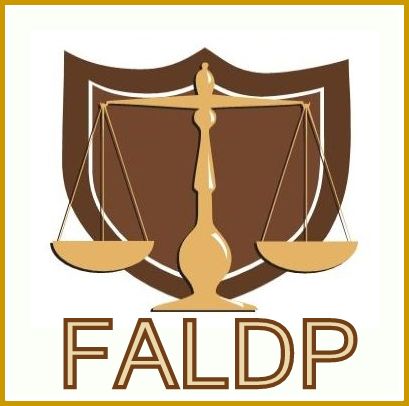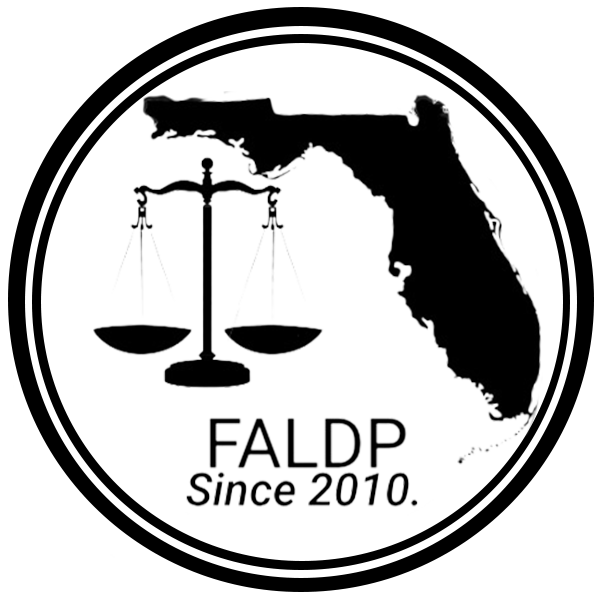800-515-0496
Civil Process & Procedure
 Florida Association of Legal Document Preparers
Florida Association of Legal Document PreparersFor many consumers the legal system is the most intimidating entity they have ever encountered. There are huge bodies of law and information about almost everything. Few consumers have the time to wade through complex rules and cases to find out how to proceed. Most consumers can find out the substantive law. The actual case precedent, rule and statute that governs their case. Understanding court process and procedure is another matter entirely. Florida's court procedures are not straightforward. Many attorneys struggle with procedure, which is why paralegals are mostly responsible for procedure. But, what if you get sued and for whatever reason, need to proceed without an attorney. In Florida a self-represented litigant is called a "pro se" litigant, which means on for one's self or on one's own behalf. Have you been sued and confused about the process? How do you find out what procedures to follow? What do you do when you are served with “papers?” What gets filed first? What do you do next? How do you get the judge to listen to you? What is the process? When do you do what? How do you navigate through everything coming at you? If you find that you need to sue someone, without an attorney, the same questions apply.
Case Jurisdiction
There are three main court jurisdictions for civil cases. These are small claims for cases with damages up to $8000.; County Court for cases with damages more than $8000. and up to $30,000.; and Circuit Civil with damages exceeding $30,000. The rules for County Court and Circuit Civil are essentially the same, so we'll treat them the same, and call them civil court claims. Small claims is known as the people's court, although attorneys are allowed to appear in small claims cases. The rules for small claims court are different from civil court claims and are usually more relaxed and the process is usually faster. Family court is a special division of civil court. Case jurisdiction is not the same as case venue. Jurisdiction is the court who has the authority to make rulings and hear cases. Venue is the place where those rulings and hearings take place. For example, the entire state of Florida has court jurisdiction for family court cases concerning Florida residents, but the venue depends on the county and circuit where the family case will be heard.
Small Claims
Small Claims Court is a special division of civil court, and the rules are different from other civil courts. To initiate a claim, rather than a complaint, the Plaintiff files a document called a "Statement of Claim" and has the other party served by a process server. The clerk of court prepares the Summons which includes a date and time for a Pre-Trial Conference. If both (or all) parties appear at the Pre-Trial Conference, they will be sent to mediation to try to come to an agreement before going before the judge. If the parties are able to come to an agreement, the mediator prepares a Settlement Agreement, both (or all) parties sign, and then the mediator lets the judge know that the parties came to an agreement, and the judge signs an order reflecting the agreement.
If an agreement is not reached, then the parties appear before the judge and each make their argument. Or a new date is set for a hearing on the matter.
If the Defendant does not appear at the Pre-Trial Conference, but has been properly served, an Order for Default is signed by the judge. When a Defendant is defaulted, he loses his right to defend himself and the ruling goes in favor of the Plaintiff. Similarly, if a Plaintiff does not appear at the Pre-Trial Conference, the case is usually dismissed.
Forms for small claims are generally readily available on the clerk of court's website for each county.
Family Court
Family Court is another special division of civil court, and is actually divided into two subdivisions - Magistrate Hearings and Family Court. Family court magistrates are attorneys appointed by the chief judge in each circuit to hear uncontested family law matters. They are also called "General Magistrates" and "Hearing Masters". Child support matters are usually heard by a Magistrate. Be aware that Magistrates are not allowed to hear cases involving child custody or disestablishment of paternity.
Magistrates do not render court orders, they make recommendations to the family court judge on matters heard before them. Family court judges almost always sign the Magistrate's recommendation, making their recommendation a court order. This may seem unfair, however, the purpose of having Magistrates in the family court process is to expedite family court matters, and the Magistrate was present, the judge was not, so it is usually reasonable for the judge to sign off on the Magistrate's recommendation.
Parties must agree to their case being heard by a Magistrate, and have 10 days to object if they receive an Order of Referral to General Magistrate. If that happens, the hearing will be held before a family court judge.
The court rules in family court are similar to civil court. There are forms published and approved by the Florida Supreme Court for use by pro se litigants.
General Civil - County and Circuit Civil
Generally,
each county will have a "self-help" section. They can provide you with forms and whatever printed
instructions may be available from that county, but the clerks of court are not
allowed to give you advice. They give or sell you forms or packets
of forms, but they cannot tell you what to do, how to do anything, or
when to do it.
The County Civil Division is responsible for all civil matters including: automobile negligence, evictions, ejectments, professional malpractice, product liability, condominium lawsuits, eminent domain, real property, mortgage foreclosure, contract indebtedness, etc. Circuit civil complex litigation is a part of the Circuit Civil Division, and includes business and tort subdivision.
Each county has a link to its Rules and Policies. These include the following: administrative orders, general orders, civil orders, county orders, criminal orders, local rules, probate rules, juvenile orders, unified family orders, and so far, you haven’t even looked at the official Civil Rules of Procedure. The administrative and general orders will generally not be something you will need to manage; however, in civil litigation you need to be aware of civil and county orders, and local rules, as well as the Rules of Civil Procedure.
Initiating a Civil Case
 General to specific ...
General to specific ...Before even seriously considering suing someone in civil court, all possible avenues of negotiation should be exhausted. The obvious reason is that law suits are expensive, time consuming, and there is no guarantee either party will get what they want or deserve. After you've given up trying to negotiate, do your research. Talk to attorneys, Read online. Go to the law library. One good and no cost way to research case law is through google scholar. Learn as much as you can about the issues and procedure that you can. The law is immense. Procedure is labyrinthine.
Once you feel comfortable that you understand the issues and procedure in your case, prepare your complaint. Find complaints that are similar to what yours will be. Similar subject matter, and in Florida. Notice the layout of the complaints -- the case caption, and style of case. Notice the formatting of the complaint and subsequent pleadings. Understand what is meant by jurisdictional allegations. (These are at the beginning of a complaint and state why the case should be heard in the jurisdiction you'll be filing in). Then tell your story, paragraph by paragraph. Each one building on the one before it.
If you're answering a complaint, answer "affirm" or "deny" numbered paragraph by numbered paragraph. You'll prepare your answer in the same format as the complaint.
There are many more steps to seeing a law suit through. Your case may or may not go through a discovery process, require subpoenas, or other forms and documents needed as your case progresses. Learn all you can, And remember, we're here to help!
Document Preparers Can Help
Document preparers may not offer legal advice or provide legal representation in court. However, a document preparer may be able to explain procedure, clarify time lines, translate legal terminology, and prepare documents according to your instructions. We have members throughout the state sorted by County and Circuit. Browse our Member Directory. We also have members who offer virtual services that offer services over the phone and internet, typically delivering your completed documents via email.
We Can Help!
Watch the Video to Learn More

Or Call 800-515-0496 for a referral to a document preparer in your area.
Neighbor Dispute - Questions and Answers
Small Claims - Questions and Answers
General Civil - Questions and Answers
Copyright 2010-2025 ~ All rights reserved.
